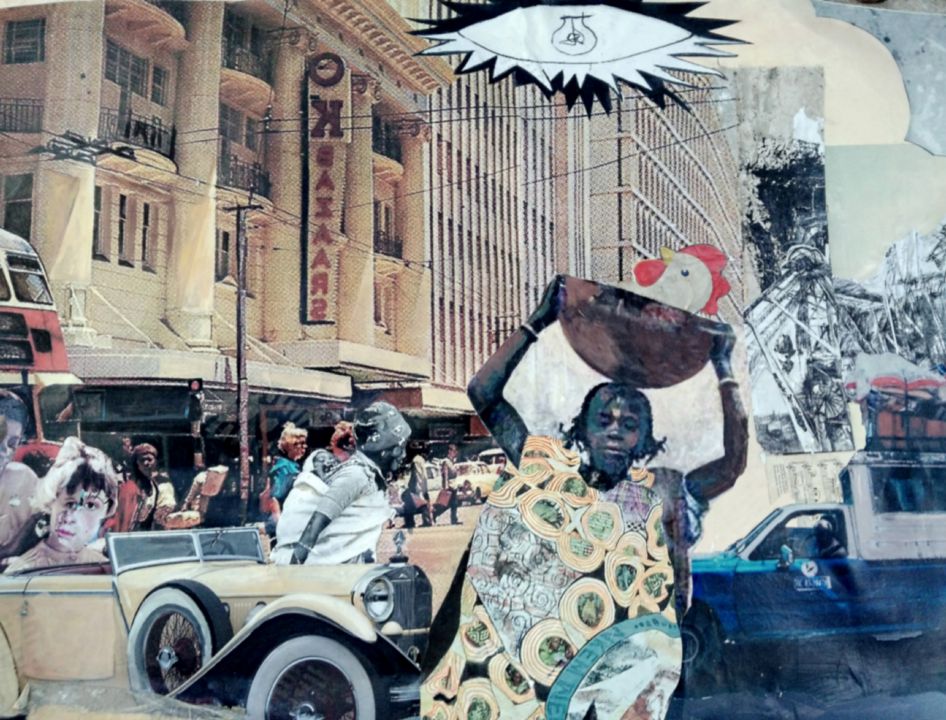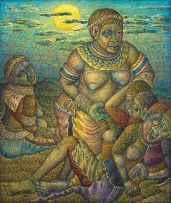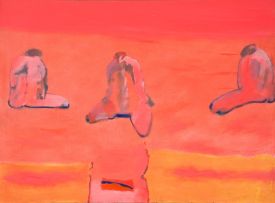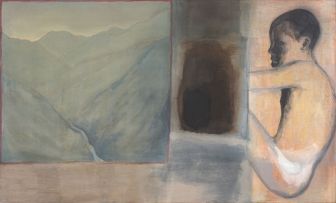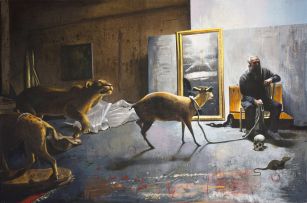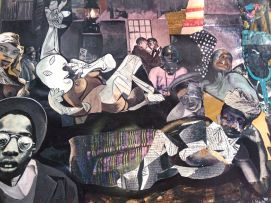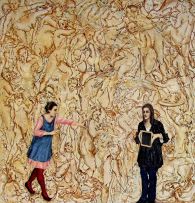Contemporary Art
Live Auction, 17 February 2018
Contemporary Art
Incl. Buyer's Premium & VAT
About this Item
signed and dated 11
Notes
Hailing from King William's Town Ayanda Mabulu's name may very well be synonymous with the word controversy. Mabulu's Yakhal'inkomo (Black Man's Cry) was removed from the 2013 edition of the FNB Joburg Art Fair for its commentary on the infamous Marikana Massacre.
Marikana Widows is an alternative reading and commentary on the massacre that still plagues South Africa, questioning police morality, capitalism and the plight of labourers. This alternative reading is constructed by the use of various symbols in the work, which allow for reclaiming a specific narrative and voice. In the foreground is a woman who represents as the icon of all widows, Marikana widows, specifically those who possess a resilience to the enduring and constant needs of life. It signals that for the economically marginalised, life will have to continue.
By employing collage, the artist's use of references to other artists is easily identifiable. The collage not only includes an image of William Kentridge's drawings of mining headgear in black and white, but also a reference to the father of Cubism, namely Pablo Picasso. Strikingly chromatic and positioned is the sun containing in it a light bulb at the top centre of the painting, an exact reproduction of the motif from Pablo Picasso's Guernica which is a symbolic commentary of the bombing of the Spanish town Guernica. Here, too, the sun with the light bulb, takes top centre stage.
